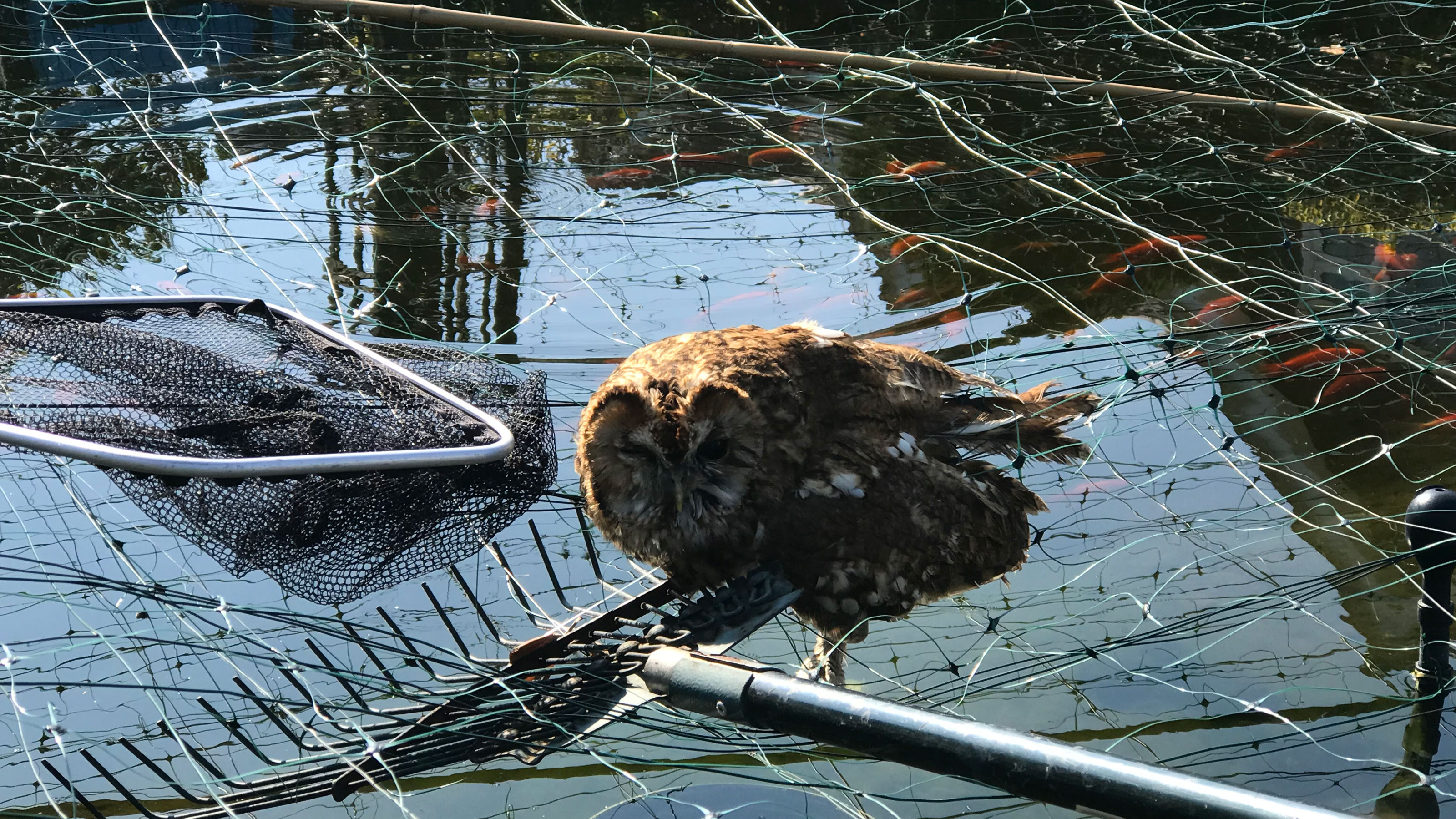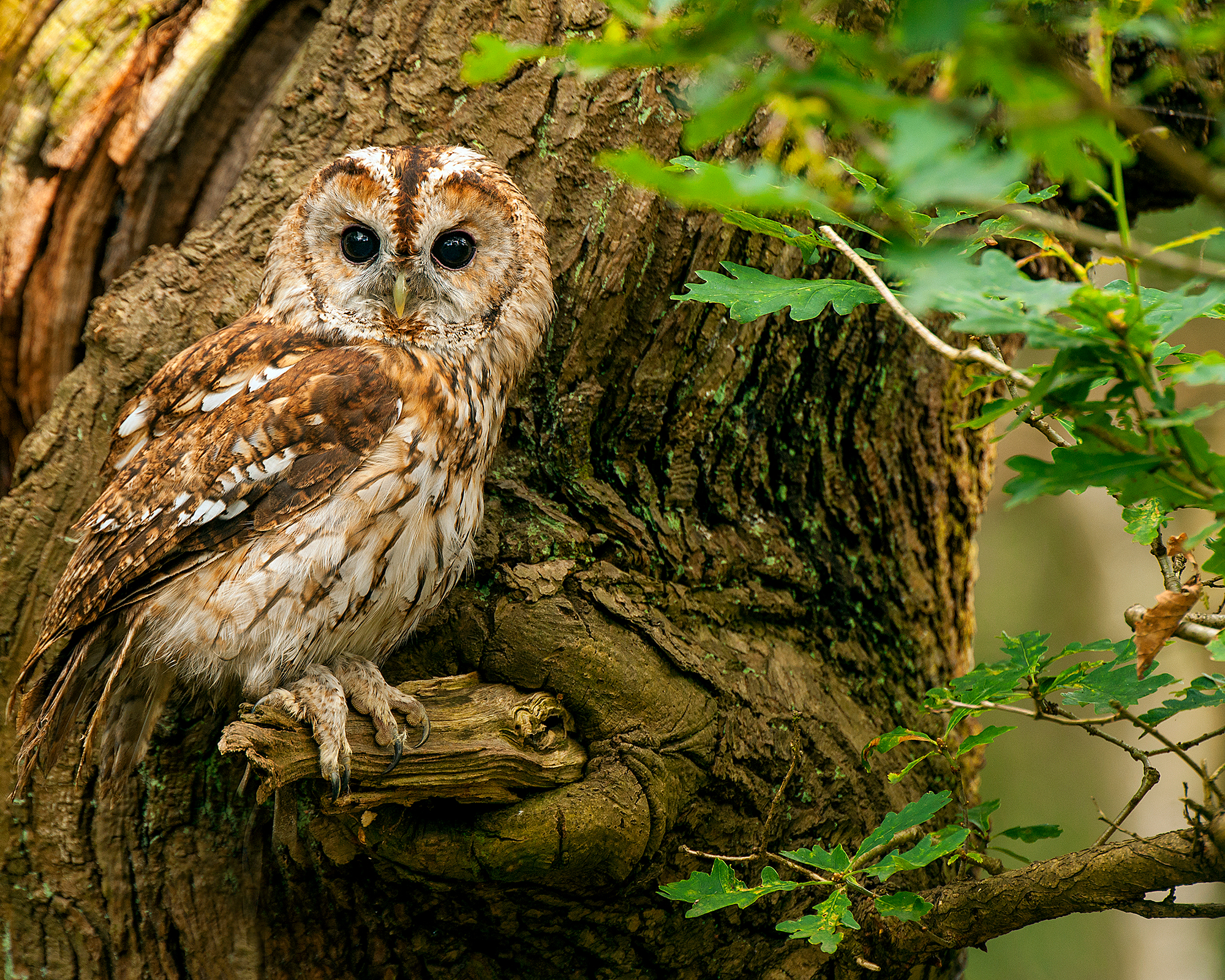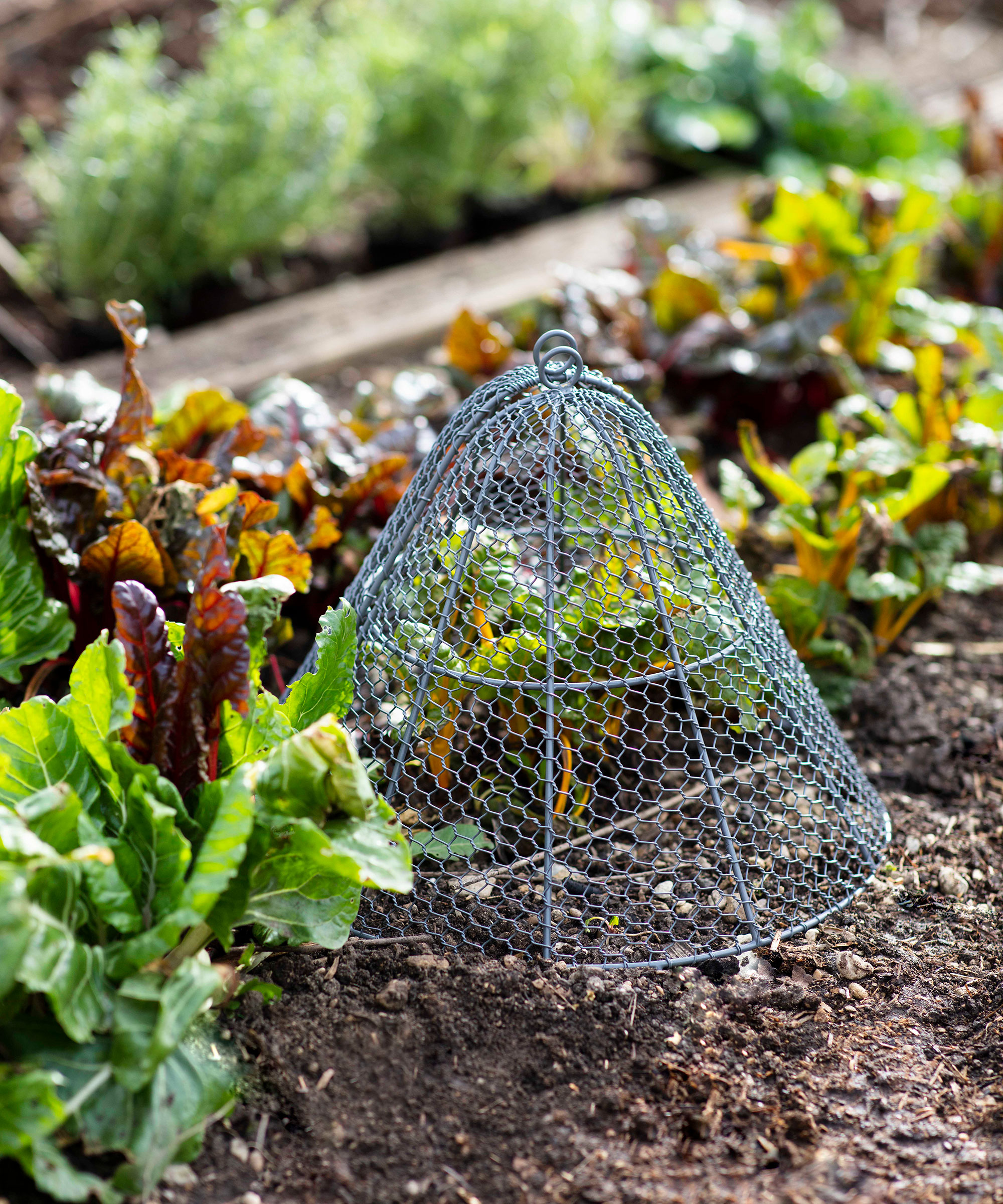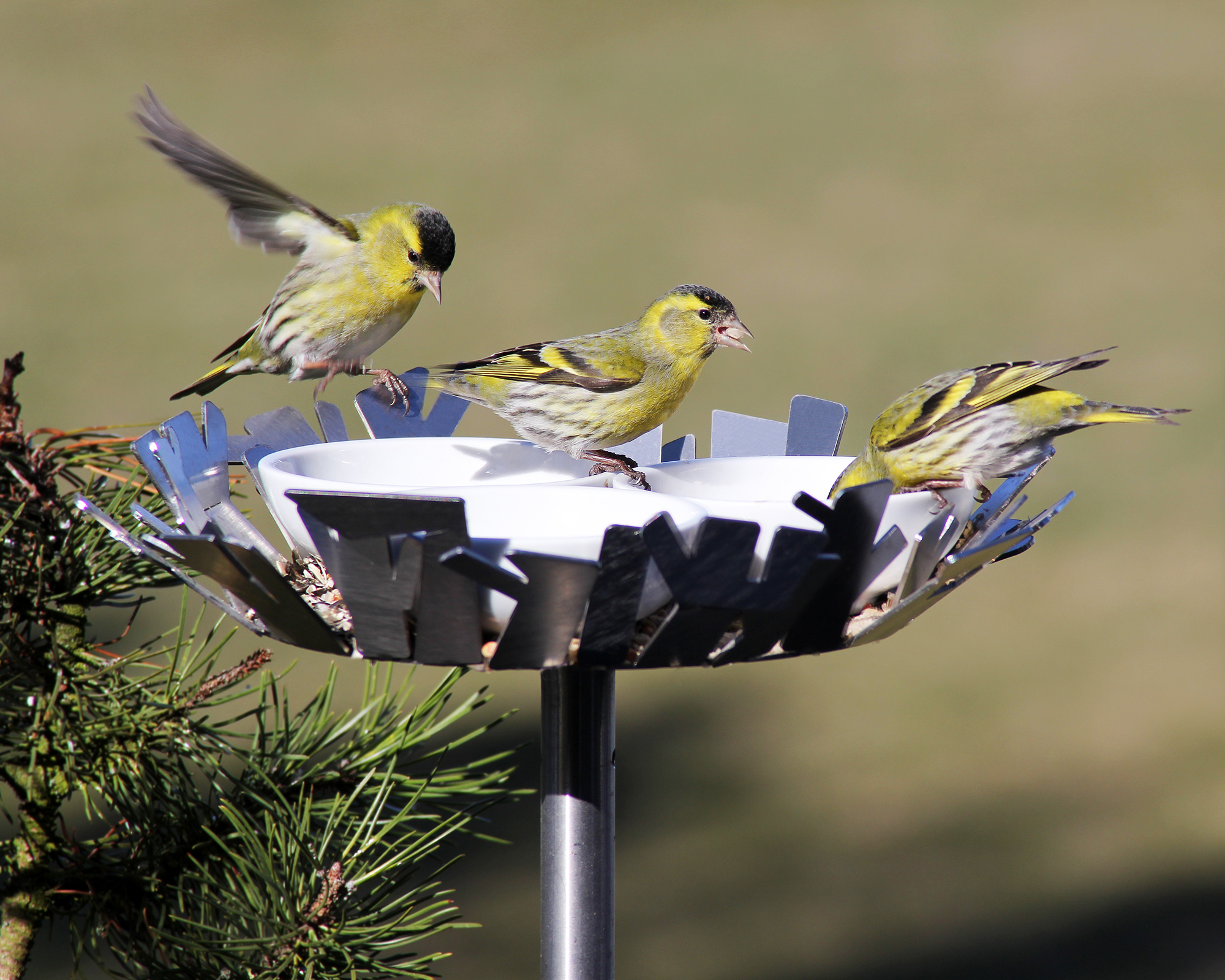RSPCA issues warning to gardeners to avoid dangerous garden netting
RSPCA warns gardeners to remove dangerous netting as it rescues an entangled tawny owl from a suburban garden pond


Wildlife experts at the RSPCA have issued a stark warning to gardeners after officers were called to free a tawny owl that had become caught up in plastic netting over a garden pond in Sydenham, south London earlier this month.
RSPCA animal rescue officer Mat Hawkins was called to the emergency on Tuesday 8th March after a resident spotted the tawny owl in trouble.
'The poor owl was discovered in the morning. I suspect he swooped in to catch a mouse that was scurrying near the pond the night before but got his leg in the netting and ended up in the water where he struggled and got further tangled,' says Mat.

'I pulled on my waders and got into the pond but I was worried about him drowning in the struggle so I used my net to scoop him from underneath, give him some support, and prevent him from dropping below the surface.'
Mat adds: 'He’d obviously been struggling to escape for some time as the poor thing was completely exhausted and barely moved while I set about cutting him free from the netting.'
Mat took the owl to South Essex Wildlife Hospital where experts checked him over and, thankfully, confirmed there were no injuries. He was given a clean bill of health and Mat returned to the garden a few days later to release him back into the wild.
'I’d like to remind gardeners that all kinds of garden netting, including pond or fruit netting, can be a real hazard to wild animals.'
Best netting to protect birds and wildlife
If you don't want to attract birds to your garden and want to add some safe wildlife garden ideas to your outdoor space the RSPCA recommends replacing plastic netting with solid metal mesh. Wildlife gardening expert Dan Rouse says the best alternatives to netting are cloches which are white or light in color: 'Green tends to blend in too much and the birds are unable to see it and become entangled.'

Alternatives to netting
You can also try using distraction techniques to keep our feathered friends away from ponds and seeded areas. Dan suggests hanging reflective items such as old CDs, wind-socks or wind-chimes from stakes to put birds off.
'The other option, which is a personal favorite as it works, is to have an area that would be your "donation zone" so encourage plenty of food there,' he says. 'Mine is at the bottom of the garden away from my vegetables where I put apples I do not want from the tree, some raspberries and regular bird feed which keeps the birds down that end.'

'Without birds in our gardens, we would see an increase in aphids, caterpillars, snails, and slugs so they do a brilliant job for us. But perhaps consider moving the feeding areas away from your food areas. This still allows them to feed, just not on your crops.'
Plastic netting causes pollution
Dan adds that plastic netting not only causes harm and issues with birds: 'It also releases a lot of plastic into the environment if it’s not maintained correctly which is then ingested by other critters such as hedgehogs and small mammals.'
If you care about wildlife - in your garden and elsewhere - it makes sense to avoid it.

Jayne Dowle is an award-winning gardening, homes and property writer who writes for publications including Sunday Times Home, Times Bricks & Mortar, Grand Designs, House Beautiful and The Spectator. She was awarded the Garden Journalist of the Year accolade at the Property Press Awards in 2021.
